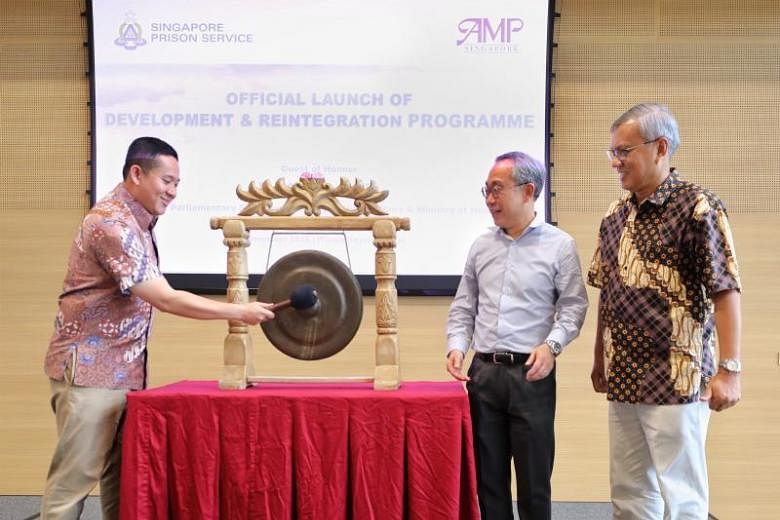SINGAPORE - When Ahmad (not his real name) was incarcerated last year (2017), his biggest worry was whether his six children would be properly cared for.
The 34-year-old divorcee, who was arrested for consuming Ice, or methamphetamine, expressed his concerns to his case worker while he was serving a six month sentence at the Drug Rehabilitation Centre (DRC).
His case worker from the Association of Muslim Professionals (AMP) visited his home often and provided additional support to his parents who were helping to care for his children, aged between nine and 14. The case worker helped to enrol his children in student care centres and applied for financial assistance for Ahmad through the Social Service Office.
Ahmad is one of the over 180 inmates who have benefited from a Development and Reintegration Programme, which was launched by Senior Parliamentary Secretary for Home Affairs Amrin Amin on Saturday (Nov 17), at an event held at Wisma Geylang Serai.
The initiative, first piloted in 2017, is a collaboration between the Singapore Prison Service and AMP to provide support to Malay/Muslim inmates in the DRC and their families.
Sharing what he called "grim" facts in his speech, Mr Amrin said that seven in 10 inmates in prison have a drug antecedent.
But while drug abuse affects all communities, the Malay community is over-represented, he said, adding that in 2017, more than one in two drug abusers arrested were Malay.
"The proportion of Malays among new drug abusers has also increased, from 36 per cent in 2007 to 50 per cent in 2017. This has to stop," he said.
Mr Amrin said the programme provides continuity of care from prisons to after release with the aim of preventing re-offending.
"While the foundations of rehabilitation start inside prisons, support from the community is a scaffold, that allows sustainable support for ex-offenders beyond the prison walls," he noted.
Mr Amrin called for more Malay-Muslim Organisations to step forward, by taking a leaf from AMP's work, to support drug offenders and their families, and advocate the anti-drug message.
Under the programme, each inmate is managed by a case worker during the incarceration phase. They undergo a personal development programme with topics such as financial literacy and parenting.
Case workers also help family members of inmates, by giving advice on financial planning and finding ways for them to be financially independent.
For up to a year after release, case workers will meet the inmates at least once a month, and work with them on strategies to prevent re-offending.
In Ahmad's case, AMP senior manager Hameet Khanee J Hussain, who heads the social services division, said the programme helped "stabilise his set-up" outside prison such as his rental flat payment issues which gave him the peace of mine to return to work.
Ahmad, who was formally a security supervisor, is currently undergoing a professional conversion course to become a lift technician.
"My worry is about work, I have kids and its hard for me to get a good job. (But) if I have a problem, I can meet the case worker to talk," he added.


